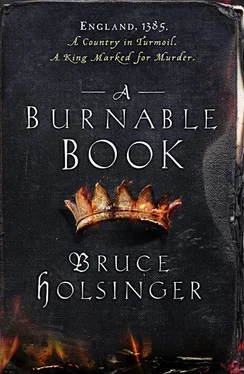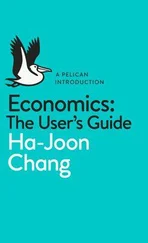Bruce Holsinger - A Burnable Book
Здесь есть возможность читать онлайн «Bruce Holsinger - A Burnable Book» — ознакомительный отрывок электронной книги совершенно бесплатно, а после прочтения отрывка купить полную версию. В некоторых случаях можно слушать аудио, скачать через торрент в формате fb2 и присутствует краткое содержание. Год выпуска: 2013, Издательство: HarperCollins Publishers, Жанр: Исторический детектив, на английском языке. Описание произведения, (предисловие) а так же отзывы посетителей доступны на портале библиотеки ЛибКат.
- Название:A Burnable Book
- Автор:
- Издательство:HarperCollins Publishers
- Жанр:
- Год:2013
- ISBN:нет данных
- Рейтинг книги:4 / 5. Голосов: 1
-
Избранное:Добавить в избранное
- Отзывы:
-
Ваша оценка:
- 80
- 1
- 2
- 3
- 4
- 5
A Burnable Book: краткое содержание, описание и аннотация
Предлагаем к чтению аннотацию, описание, краткое содержание или предисловие (зависит от того, что написал сам автор книги «A Burnable Book»). Если вы не нашли необходимую информацию о книге — напишите в комментариях, мы постараемся отыскать её.
A Burnable Book — читать онлайн ознакомительный отрывок
Ниже представлен текст книги, разбитый по страницам. Система сохранения места последней прочитанной страницы, позволяет с удобством читать онлайн бесплатно книгу «A Burnable Book», без необходимости каждый раз заново искать на чём Вы остановились. Поставьте закладку, и сможете в любой момент перейти на страницу, на которой закончили чтение.
Интервал:
Закладка:
‘“City’s blade”,’ the chancellor mused. ‘A city in Italy, then?’
‘Florence, most obviously, though that wasn’t quite it.’ We had reached the opening to the chapel of St Katherine, empty but for a sole worshipper kneeling at the altar of Mary and Martha. ‘But once Agnes’s sister told me they were speaking Italian on the Moorfields it all came to me. London is to an Englishman what Rome is to an Italian: the principal city. After that it was a simple matter of translation. In Latin, the possessive of “city”, urbs , is urbis .’ I paused. ‘She was making a pun, my lord.’
‘The blade of Urban,’ said the chancellor with a rueful smile.
‘Pope Urban’s blade,’ I finished. And there it was, I explained. When father, son, and ghost we sing, of city’s blade beware. The assassin — the true assassin of King Richard, not the bumbling company of butchers riled up by Weldon and Oxford and their skulking priest for St Dunstan’s Day — would be a member of the papal delegation, scheduled to process with the king at the abbey on the morning of Trinity Sunday.
‘The man was a professional and seasoned killer,’ the baron said. ‘Bernabo Visconti’s deadliest knife, or so he claimed before we broke his neck. Planted by Hawkwood in the papal delegation. Had he not been stopped the king would surely be dead, taken with a blade in the ribs before his closest guard could blink.’
I silently wondered whether Oxford, in the thick of the plot against Gaunt, had known about the planned attempt on the king, despite the close friendship between the two young men. Weldon surely had, though this ugly knowledge had died with him. The foiled assassination would remain known only to a few, I observed, and lost to history.
‘Just as well,’ the chancellor said with an air of tired discretion. ‘Though I do wish I could have met the girl, this Seguina d’Orange. Geoffrey Chaucer hardly deserved such a woman’s love.’
‘It wasn’t all about his clever book in the end, my lord, let alone about him,’ I said, speaking thoughts I had been mulling for days. ‘There was a greater purpose to her sacrifice than saving the skin of a London poet.’
‘That’s why Seguina d’Orange came to England, then,’ the baron mused. ‘Not only to save Lancaster, or Chaucer, nor even to find the book, as important as that was.’
I peered into the chapel, at a high wall scorched with years of pious smoke. ‘King Richard was the brother of her dead brother, and thus her own sibling, after a fashion. But he was also the son of her mother’s ravisher — and yet she came here in part to save his life.’
‘And she did it, didn’t she, with her last words,’ he said, his voice a soft coil of wonder.
‘Though only just.’ The close call before the abbey was still fresh in my mind.
‘I was there, you know,’ said the baron quietly.
‘My lord?’
‘The battle at Najera, with Prince Edward and Lancaster, all those years ago.’
‘You were in Edward’s household,’ I recalled, prompting a nod. ‘During the Castile campaign for Pedro.’
‘I wouldn’t have been with them at that woman’s castle. I was with the Gascon encampment at Burgos during those weeks. But I remember Edward’s illness after the battle, the fevers and the raging, this sense that the man was … detaching from himself, that his mind had bent somehow. Everyone agreed afterwards that Spain was the sad beginning of a long end for the prince. Seguina’s mother wasn’t the first woman he brutalized in those years, nor the last.’
We stood for a while longer, listening to the hurried murmurs of a priest from one of the chantries before the south porch. I think we both sensed a circle closing, though the machinations that had brought us here were clearly the beginning of something much larger. I thought of Hawkwood, spinning his sticky webs in Tuscany. Of Simon, fled for who knew where. Of Sarah, who had died knowing nothing of her son’s chosen profession; a minor blessing.
‘So what next?’ I eventually asked him. ‘Will you return the favour, have Hawkwood snipped?’
The chancellor let out a sigh, a slow wind of realism. ‘We need Hawkwood, Gower, even more than Hawkwood needs England. I see a long war ahead of us. There’s no reason to go stirring the pot over an unfortunate incident easily gotten past. This is how it works in the end. We pardon our second-worst enemies, make treaties with our former slaughterers. Overlook treason to win a battle.’
I told him I understood. He would get no objections from John Gower for choosing political expediency over moral purity. ‘And Simon?’ I asked neutrally. ‘Will you pursue him further?’
‘I will leave that in your hands.’ He gave me a baronial look. ‘The realm owes you a great debt, Gower. God knows your talents can create some peculiar twists. In this case, though, they’ve won the day.’
There was a rather uncomfortable pause. I knew what the chancellor expected me to say. He stood there, waiting for my demands. The Exchequer’s books, a bishop’s house on the Strand. Even a knighting by the king was not out of the question.
I surprised myself by not asking for a single shilling.
The next morning, after one of the soundest sleeps of my life, I left the priory grounds on foot, crossing the bridge and walking beneath the outer arches of the St Thomas Chapel as the first glimmer of sun broke through low morning clouds. Once on the north bank I descended to the wharfage and the offices of the wool custom. Chaucer, so a clerk at the customhouse told me, was out of town. A difficulty at Hythe, rumours of illegal wool.
The clerk stepped out for a moment, giving me the opportunity to take a glimpse at Chaucer’s desk. On it sat a small quire, weighted open to a page nearly empty of content: pen trials, a few doodles, some couplets. I leaned over and read.
Befell that in that season, on a day,
In Southwark at the Tabard as I lay
Ready to ride forth on my pilgrimage
To Canterbury with full devout courage,
At night was come into that hostelry
Well nine and twenty in a company
Of sundry folk, by adventure fallen
In fellowship, and pilgrims were they all,
That toward Canterbury would ride.
I had to read the lines again. In Southwark ? Chaucer was a London man, through and through, and as far as I knew had never gone on pilgrimage to Becket’s shrine, or anywhere else, for that matter. If he travelled to Canterbury it would be for business or pleasure, not for faith. False prophecies, false pilgrimages: all the same to my slippery friend.
Outside the customhouse I stood on the wharfage, watching the slow, careful movement of the Goose as it craned a pile of wool from the dock. On the decks of the trading vessels workers toiled at the crates and barrels of goods brought to London from around the earth, from the looms of Lyon, the vineyards of Alsace and Tuscany, the olive groves of al-Andalus, and there, on the river’s edge of London, with the low bulk of Southwark rising before me, with the dense span of the bridge against the sky, I felt the unboundedness of it all. A history I would never fully understand had passed me by, these great machinations linking Florence, London, the marches of Aragon and Castile — and the narrow lanes of Southwark, and a dead woman on the moor.
We live in an immense world, whole universes of taste and touch and scent, of voices commingling in the light, and dying away with the common dread that stands at every man’s door. Yet we perceive and remember this world only as it creates those single fragments of experience: moments of everyday kindness, or self-sacrificing love, or unthinkable brutality. I angled my face to the sun and blinked away a spot, then another, these dark blemishes floating in my sight, mottling my vision, more of them by the day. Yet behind and beyond them I could imagine, for a moment, the holy sheen of Sarah’s skin, the faces of our children, the intricate gloss of some forgotten book, and I thought how simple it should be, to know and cherish the proper objects of our lives.
Читать дальшеИнтервал:
Закладка:
Похожие книги на «A Burnable Book»
Представляем Вашему вниманию похожие книги на «A Burnable Book» списком для выбора. Мы отобрали схожую по названию и смыслу литературу в надежде предоставить читателям больше вариантов отыскать новые, интересные, ещё непрочитанные произведения.
Обсуждение, отзывы о книге «A Burnable Book» и просто собственные мнения читателей. Оставьте ваши комментарии, напишите, что Вы думаете о произведении, его смысле или главных героях. Укажите что конкретно понравилось, а что нет, и почему Вы так считаете.












